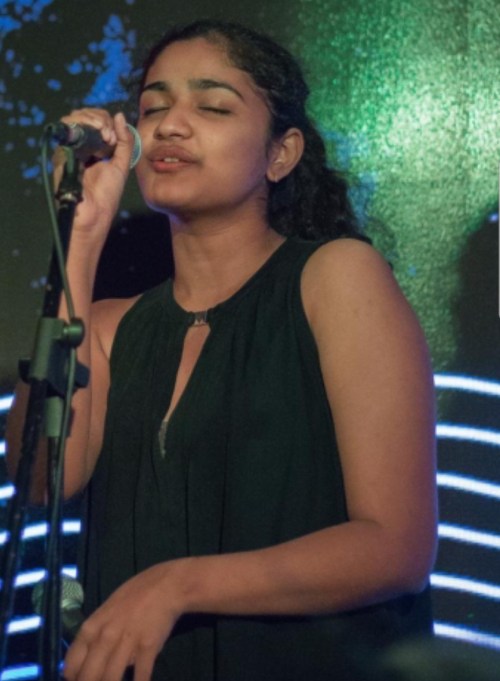I teach a semester titled ‘Introduction To World Percussion’ at the NMIMS School Of Performing Arts in Mumbai. It is a very encouraging sign to see the quality of music education evolve into an international standard course at an institution with the best faculty in the country coupled with a growing infrastructure. As a part of this course, working in tandem with my big brother and drum faculty, Mr. Gino Banks, I introduce all the students (regardless of their instrument specialization) to various percussion instruments, basic rhythmic concepts that they can apply on their respective musical instruments and finally, to the world of djembe (West-African Percussion).
The following report is written by Michelle, one of the singers at the college. I thought that her unique perspective deserved a highlight. If you are looking for drum classes in Mumbai, djembe classes in Pune, you know where to look. Happy reading…
Varun Venkit

Djembefola, the documentary leaves a lasting impression, long after the credits have rolled. Music is such an integral part of my identity but seeing it portrayed as an integral part of a culture really stands out to me. A musical sensibility that is very different from my own and highlights the strong bonds of family, kinship, and love in every beat that’s played.
In particular, three things really impact me. The first is the representation of a non-Western form of music. In a world where Western culture impacts almost everything, it is thrilling to see a musical form, structure and ideology that’s so far away from the West. There’s something powerful about rhythm and how it moves your body into dance. It was also interesting to feel how a story could be without the evocative nature of melody or lyrics.
I feel that as a singer, I’ve become complacent to the fact that lyrics hold meaning and can invoke feelings in others. Seeing the master Mamady Keita play exuberant solos reminded me of the fact that music in its very essence is a soulful experience and should be played as such.
But while the lyrical nature of the djembe was impactful, another thing that really stood out for me was the effortless narration through music and dance. Music and dance are not strangers to each other. Where there is dance, there is music. And music somehow moves you to dance. However, there is always a sense of forced feeling that makes it seem like music and dance do not go hand in hand. I am an ardent admirer of musical theatre. And while the dance numbers and huge ensemble displays are very masterful and tastefully pulled off, this was the first time I’ve seen such a natural translation of the idea that music and dance belong together. The feeling of joy so pure that there is no other way to express it but through dance and that really struck me. Seeing the women sing and dance in unison was such a delightful experience, but more than that, through lessons in understanding West African music, the stories really do make me think that this is another interpretation of the musical theatre tradition that exists all around that world.Finally, what struck me was Mamady Keita’s approach to music. While I am a little sceptical about his hands being washed in a certain herb that prevents strain, I choose to interpret it as a passion for music that runs so deep that one would never tire of continuing in the pursuit of knowledge, and the drive to excel and master the instrument. Another aspect of this is Mamady Keita’s showmanship. As a singer, I’ve been told on many occasions to “Be a performer” and I’ve never fully understood what it meant to be a performer as opposed to just a musician. Mamady Keita really embodies the spirit of a performer, entertaining the crowds with masterful technique and display of showmanship. I truly admire him for his skills, both as a musician as well as a performer.Michelle Naidu, Singer and student at NMIMS School Of Performing Arts, Mumbai

Varun is the founder and director of Taal Inc.
The visionary behind the motto
Come. Drum. Be One.
To read more about him Click Here
